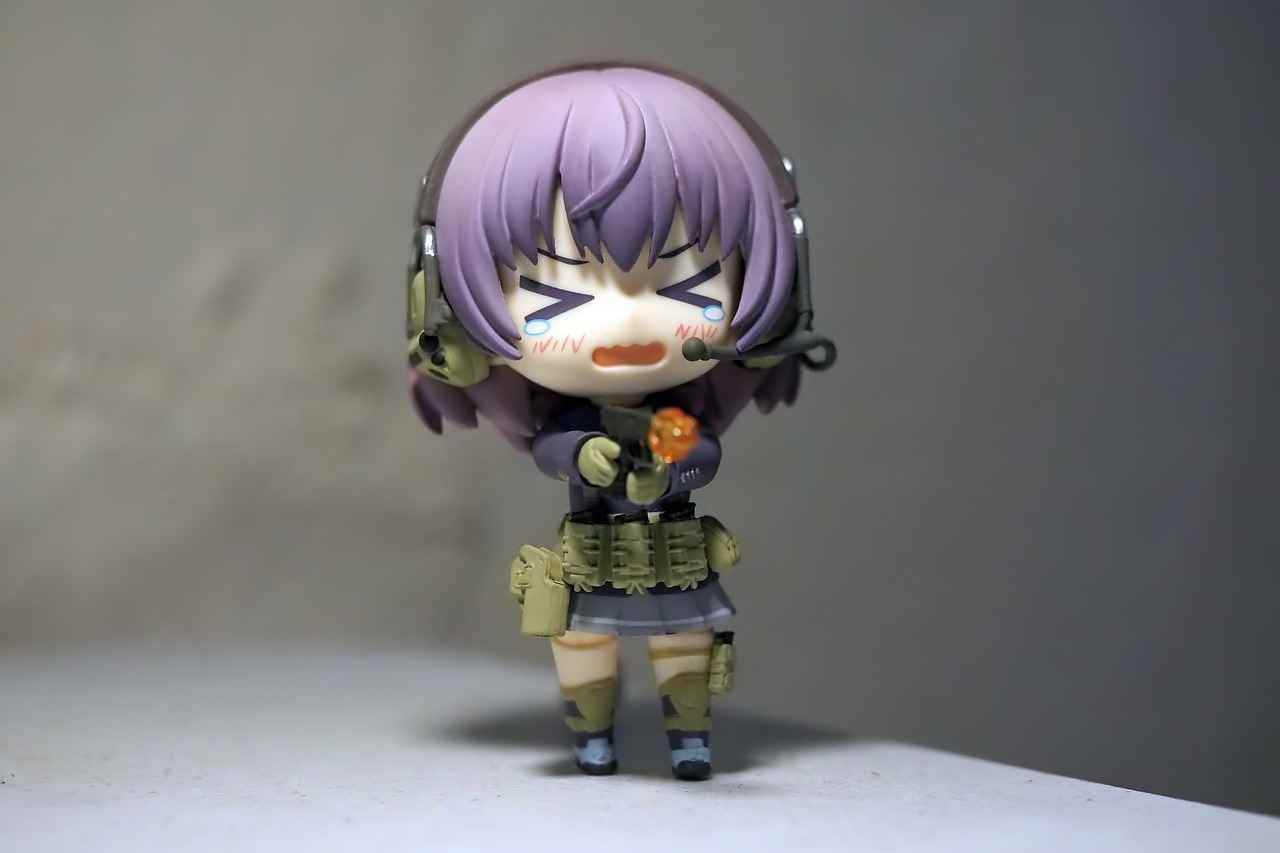This article examines the profound transformation of Yato in Noragami, focusing on his struggles, relationships, and growth. Yato’s journey resonates deeply with fans, enriching the overall narrative and highlighting themes of redemption and identity.
The Complexity of Yato’s Character
Yato’s character is multifaceted, blending elements of humor and darkness. His backstory reveals a troubled past filled with mistakes that shape his journey from a god seeking recognition to a more human-like figure. This complexity makes Yato relatable, as he grapples with his identity and purpose.
The Significance of Yato’s Relationships
Yato’s interactions with other characters, particularly Hiyori and Yukine, are pivotal to his development. These relationships not only influence his growth but also contribute to the overarching themes of redemption and connection in the series.
- The Dynamic Between Yato and Hiyori: Hiyori’s unwavering support challenges Yato to confront his past, fostering emotional depth and growth.
- Hiyori’s Impact on Yato’s Choices: Specific moments highlight how Hiyori guides Yato towards better decisions, marking significant turning points in his character arc.
- The Evolution of Their Bond: Key episodes showcase the growing bond between Yato and Hiyori, emphasizing its importance in his journey of self-discovery.
The Mentor-Mentee Relationship with Yukine
Yukine’s relationship with Yato serves as a catalyst for Yato’s growth. Their mentor-mentee dynamic reveals Yato’s protective instincts and deep sense of responsibility, further enriching his character.
Thematic Elements of Redemption and Identity
Yato’s journey encapsulates themes of redemption and the quest for identity. His past mistakes haunt him, driving his desire for redemption and self-acceptance. Through interactions with humanity, he finds purpose and a deeper understanding of himself.
Conclusion: The Enduring Appeal of Yato’s Arc
Yato’s transformative journey is a testament to the power of growth and redemption. His character resonates with audiences, making it one of the most compelling arcs in Noragami.

The Complexity of Yato’s Character
Yato, the enigmatic deity from the anime Noragami, presents a complex character that captivates audiences through a unique blend of humor and darkness. His multifaceted nature is not merely for entertainment; it serves as a vehicle for exploring profound themes of identity and redemption.
Born as a lesser god, Yato’s backstory is steeped in tragedy. He once aspired to be worshipped and revered, but his past is marred by mistakes and failures that haunt him. This section delves into his motivations, revealing a character driven by a deep-seated desire to change and be recognized, not just as a god, but as a human being capable of love and connection.
Yato’s internal conflicts are pivotal to his character development. He constantly battles between his divine nature and his yearning for humanity. This struggle is vividly illustrated through his interactions with others, particularly with the spirited Hiyori and the troubled Yukine. Each relationship acts as a mirror, reflecting Yato’s fears and aspirations, thereby pushing him towards self-discovery.
Furthermore, Yato’s humor often serves as a coping mechanism, allowing him to mask his pain and insecurities. However, this humor is juxtaposed with moments of profound reflection, highlighting the duality of his existence. As he navigates through various challenges, the audience witnesses a gradual transformation, where Yato evolves from a self-serving god to a more empathetic and relatable figure.
In conclusion, Yato’s character is a rich tapestry woven with threads of humor, darkness, and redemption. His journey from a god burdened by his past to a more human-like figure is not just a narrative arc; it is a reflection of the universal quest for identity and acceptance. This complexity is what makes Yato one of the most compelling characters in Noragami.

The Significance of Yato’s Relationships
is a crucial theme in Noragami, as it intricately weaves together Yato’s journey towards redemption and self-discovery. The dynamics he shares with Hiyori and Yukine not only shape his character but also enrich the narrative, highlighting the importance of connection and the impact of relationships on personal growth.
Yato’s interactions with Hiyori are particularly transformative. Hiyori serves as a beacon of hope and support, challenging Yato to confront his troubled past. Her unwavering belief in him encourages Yato to embrace his humanity, fostering emotional depth and growth. For instance, during pivotal moments when Yato doubts himself, Hiyori’s encouragement often leads him to make choices that align with his desire to change. This relationship exemplifies how love and friendship can motivate individuals to strive for better versions of themselves.
Furthermore, the evolution of Yato and Hiyori’s bond throughout the series is significant. Initially, Yato appears detached and indifferent, but as he spends more time with Hiyori, he begins to reveal his vulnerabilities. This gradual opening up allows for a deeper connection, showcasing how genuine relationships can help individuals confront their fears and insecurities.
In addition to Hiyori, Yato’s relationship with Yukine plays a pivotal role in his development. As a mentor to Yukine, Yato is forced to confront his own responsibilities and the consequences of his past actions. This mentor-mentee dynamic not only highlights Yato’s protective instincts but also instills a sense of accountability within him. Yukine’s growth under Yato’s guidance reflects Yato’s own journey, creating a parallel that emphasizes the themes of redemption and personal responsibility.
In conclusion, the significance of Yato’s relationships with Hiyori and Yukine is profound. These connections are not merely plot devices; they are essential in driving Yato’s transformation from a god seeking recognition to a being striving for redemption and human connection. Through these relationships, Noragami explores the intricate web of human emotions, illustrating how love, support, and mentorship can lead to profound personal growth.
The Dynamic Between Yato and Hiyori
In the world of Noragami, the relationship between Yato and Hiyori is not just a mere friendship; it is a profound connection that significantly impacts Yato’s transformation. Hiyori, a human girl with a strong sense of justice, becomes a beacon of hope for Yato, a god struggling with his dark past. Her unwavering support and belief in him challenge Yato to confront his inner demons and embrace his humanity.
Hiyori’s presence in Yato’s life serves as a catalyst for his growth. Throughout the series, she encourages him to reflect on his past actions and the consequences they have had on others. This process of self-reflection is crucial for Yato, who often grapples with feelings of inadequacy and guilt. Hiyori’s insistence on seeing the good in him pushes Yato to strive for redemption, fostering a sense of responsibility that he had long abandoned.
Moreover, Hiyori’s ability to connect with Yato on an emotional level allows him to experience feelings he had suppressed for so long. As their bond deepens, Yato learns to express vulnerability and compassion, traits that are essential for his evolution from a god to a more human-like figure. This emotional depth enriches the narrative, highlighting the importance of human connections in overcoming personal struggles.
Their relationship also showcases the theme of mutual growth. While Hiyori helps Yato confront his past, she too learns from him, gaining strength and courage in the process. This dynamic creates a balanced partnership where both characters influence each other’s development, emphasizing the idea that growth often occurs through relationships.
In conclusion, the dynamic between Yato and Hiyori is a vital aspect of Noragami that illustrates the transformative power of support and understanding. Their journey together not only enhances Yato’s character arc but also resonates with audiences, making their relationship one of the most compelling elements of the series.
Hiyori’s Impact on Yato’s Choices
In the world of Noragami, the character of Hiyori plays an indispensable role in shaping the journey of Yato, a minor god struggling with his identity and purpose. Her influence is not merely incidental but rather a catalyst for Yato’s transformation. This section delves into specific instances where Hiyori’s unwavering support and insight lead Yato towards making better choices, ultimately guiding him on a path of redemption.
- Initial Encounter: Hiyori first meets Yato after an accident that leaves her spirit separated from her body. This moment is crucial as it sets the stage for their relationship. Hiyori’s compassion and willingness to help Yato despite his flaws challenge him to reflect on his actions.
- Encouragement in Adversity: Throughout their adventures, Hiyori consistently encourages Yato to confront his past. For instance, during moments of self-doubt, her words serve as a reminder of his potential for growth, pushing him to make choices that align with his desire to be a better god.
- The Power of Connection: Hiyori’s insistence on forming connections with others helps Yato understand the importance of relationships. Her influence leads him to protect not just her, but also those around him, marking a significant shift in his character.
- Facing His Past: In critical moments, Hiyori confronts Yato about his past mistakes. This confrontation forces him to acknowledge his wrongdoings and motivates him to seek atonement, showcasing her role as a moral compass in his life.
Hiyori’s impact on Yato is profound and multifaceted. By challenging him to confront his past and embrace his humanity, she helps him evolve from a self-serving god to a more compassionate being. This transformation is not just a pivotal aspect of Yato’s character arc but also enriches the overall narrative of Noragami, illustrating the power of influence and the significance of human connections.
The Evolution of Their Bond
The relationship between Yato and Hiyori is a central theme in the anime Noragami, showcasing a profound evolution that significantly impacts both characters. Throughout the series, their bond transitions from mere acquaintances to a deep emotional connection, significantly influencing Yato’s journey of self-discovery.
Initially, Yato appears as a carefree and somewhat irresponsible god, while Hiyori is a human girl who inadvertently becomes entangled in his world. As the story progresses, key episodes highlight their developing relationship. For instance, in the episode where Hiyori saves Yato from a dangerous situation, her courage and determination reveal her commitment to him. This moment marks a turning point, showcasing her willingness to stand by Yato, despite the inherent risks.
Moreover, Hiyori’s unwavering support serves as a catalyst for Yato’s transformation. She continually challenges him to confront his past, pushing him to reflect on his actions and their consequences. This dynamic is beautifully illustrated in moments where Yato grapples with his identity as a god and his desire to be more human. Hiyori’s presence encourages him to embrace his emotions, fostering a deeper understanding of himself.
As their relationship deepens, Yato begins to recognize the importance of human connections. Hiyori not only helps him navigate his struggles but also instills a sense of purpose in his life. Her influence leads to pivotal choices that steer Yato towards a path of redemption, showcasing how love and friendship can inspire change.
In conclusion, the evolution of Yato and Hiyori’s bond is integral to Yato’s character arc. Their relationship illustrates the power of support and understanding in overcoming personal demons, making it a compelling aspect of Noragami. As viewers witness their journey together, it becomes evident that their connection is not just a subplot, but a vital element that enriches the narrative and highlights the themes of growth and self-discovery.
The Mentor-Mentee Relationship with Yukine
is a pivotal aspect of Yato’s character development in Noragami. Their dynamic not only reveals Yato’s complexities but also acts as a significant catalyst for his transformation from a self-serving god to a more responsible and caring individual.
Initially, Yato sees Yukine merely as a tool for his divine purposes. However, as their relationship evolves, Yukine becomes much more than just a weapon; he emerges as a crucial figure in Yato’s life, prompting him to confront his own flaws and insecurities. This transformation is evident in several key moments:
- Protective Instincts: Yato’s protective nature surfaces when Yukine faces danger. Each time Yukine is threatened, Yato’s instinct to shield him showcases a profound shift in his priorities, moving from self-interest to genuine concern for another’s well-being.
- Sense of Responsibility: As Yukine struggles with his own identity and purpose, Yato begins to realize the weight of mentorship. He becomes increasingly aware that his actions directly impact Yukine’s growth, leading him to take on a more active role in guiding and supporting his partner.
- Emotional Growth: The bond they share fosters emotional maturity in Yato. Through their interactions, he learns to express his feelings, face his past, and accept the consequences of his actions, which is a significant step in his journey toward becoming more human.
Furthermore, Yukine’s challenges often serve as mirrors to Yato’s own struggles. When Yukine grapples with feelings of inadequacy and guilt, Yato is compelled to reflect on his past mistakes and the burden of his own failures. This mutual growth not only strengthens their bond but also emphasizes the themes of redemption and personal responsibility that permeate the series.
In conclusion, the mentor-mentee relationship between Yato and Yukine is a beautifully crafted element of Noragami. It highlights how meaningful connections can inspire growth and transformation, making Yato’s journey all the more compelling.

Thematic Elements of Redemption and Identity
Yato’s journey in Noragami is a profound exploration of redemption and the quest for identity. These themes are intricately woven into the fabric of his character, presenting a narrative that resonates with audiences on multiple levels. As Yato navigates his past mistakes and seeks to redefine himself, the story highlights the universal struggle for self-acceptance and belonging.
At the core of Yato’s journey is his struggle with past mistakes. Each error he has made serves as a haunting reminder of his former self, pushing him to seek atonement. This exploration of his past is not just a backdrop; it is a driving force that shapes his motivations and decisions. The weight of his previous actions creates a compelling narrative arc that emphasizes the importance of facing one’s demons in the pursuit of personal growth.
Moreover, Yato’s search for purpose in humanity marks a critical turning point in his transformation. Initially, Yato is portrayed as a god who desires recognition and worship, but as he interacts with the human world, he begins to understand the deeper meaning of existence. His relationships with characters like Hiyori and Yukine provide him with insights that challenge his previous notions of identity and purpose. Through these connections, Yato learns that true fulfillment comes from understanding and embracing his humanity.
Ultimately, Yato’s journey serves as a reminder that the path to redemption is often fraught with challenges. His experiences reflect the reality that self-discovery is a continuous process, marked by both setbacks and triumphs. As audiences follow Yato’s evolution, they are invited to reflect on their own quests for identity and redemption, making his story not only engaging but also profoundly relatable.
In conclusion, Yato’s journey in Noragami encapsulates the essence of what it means to seek redemption and to forge one’s identity. His struggles and triumphs resonate deeply, reminding us all that the quest for self-acceptance is a universal endeavor.
The Role of Past Mistakes
Yato’s journey in Noragami is profoundly shaped by his past mistakes, which serve as both a burden and a catalyst for his growth. These errors, ranging from his reckless decisions as a god to his failure to protect those he cared for, haunt him throughout the series. This exploration delves into how these missteps influence his character development and drive his relentless quest for redemption.
Initially, Yato is portrayed as a light-hearted and somewhat irresponsible deity, often taking on odd jobs to make a name for himself. However, beneath this facade lies a deep-seated guilt stemming from his past actions. His former life as a god of calamity left a trail of destruction and sorrow, which he struggles to reconcile with his desire to be seen as a benevolent figure.
One of the most significant aspects of Yato’s character is his internal conflict. He grapples with the consequences of his past, constantly questioning his worthiness and the impact of his actions on others. This struggle is poignantly illustrated through his relationships with characters like Hiyori and Yukine. Their presence in his life acts as a mirror, reflecting his flaws and pushing him to confront the darkness within himself.
Yato’s journey is not solely about atonement; it is also about self-discovery. As he navigates the complexities of his past, he learns valuable lessons about responsibility, empathy, and the importance of human connections. Each mistake becomes a stepping stone towards his evolution, illustrating that redemption is not a linear path but a continuous process of growth and understanding.
In conclusion, Yato’s past mistakes are integral to his character arc in Noragami. They shape his motivations, influence his relationships, and ultimately drive his desire for redemption. Through his journey, the series beautifully encapsulates the idea that acknowledging and learning from our mistakes is essential for personal growth and transformation.
Finding Purpose in Humanity
is a pivotal theme in Yato’s journey throughout the series Noragami. As a god who has long been forgotten and seeks recognition, Yato’s transition to human-like qualities is not merely a plot device but a profound exploration of identity and meaning.
Initially, Yato is portrayed as a god of calamity, often indulging in selfish desires and whims. However, his experiences with humanity, particularly through his relationships with characters like Hiyori and Yukine, lead him to question his existence and purpose. This quest for meaning is relatable to many, as it reflects the universal struggle to find one’s place in the world.
Through his interactions, Yato learns the value of connection and compassion. Hiyori’s unwavering support challenges him to confront his past mistakes and inspires him to embrace his humanity. In turn, this relationship fosters a sense of responsibility within Yato, pushing him to protect those he cares about.
Moreover, Yukine’s role as a mentee allows Yato to tap into his protective instincts. This mentor-mentee dynamic not only helps Yato grow but also reinforces his understanding of sacrifice and loyalty. As he guides Yukine, Yato begins to recognize the importance of his actions and their impact on others.
As Yato navigates the complexities of human emotions and relationships, he gains a deeper understanding of himself. His journey illustrates that finding purpose is not solely about personal ambition but also about the connections we forge with others. Ultimately, Yato’s evolution from a self-serving god to a compassionate being underscores the significance of humanity in shaping one’s identity.
In conclusion, Yato’s transition highlights a profound narrative about self-discovery and the quest for purpose. His experiences serve as a reminder that true fulfillment often comes from embracing our humanity and the relationships that enrich our lives.

Conclusion: The Enduring Appeal of Yato’s Arc
Yato’s transformative journey in Noragami stands as a powerful narrative of growth and redemption. Throughout the series, we witness Yato evolve from a seemingly insignificant god into a character rich with depth and humanity. This arc resonates deeply with audiences, as it encapsulates the universal struggle for self-acceptance and the desire to forge meaningful connections.
At the heart of Yato’s journey is his relentless pursuit of identity. Initially portrayed as a carefree and somewhat irresponsible deity, Yato’s character reveals layers of complexity as he grapples with his past mistakes and the consequences of his actions. His interactions with pivotal characters, such as Hiyori and Yukine, serve as catalysts for his growth, challenging him to confront his flaws and embrace his humanity.
Hiyori’s unwavering support plays a crucial role in Yato’s transformation. Through her, he learns the importance of compassion and responsibility, which are essential themes throughout the series. Their bond evolves, showcasing the profound impact of friendship and love on personal development. Similarly, Yato’s relationship with Yukine highlights the mentor-mentee dynamic, which further propels Yato towards a path of redemption.
Thematically, Yato’s journey is rich with elements of redemption and the quest for purpose. His past mistakes haunt him, yet they also fuel his desire to become a better being, reflecting the struggles many face in their own lives. By navigating the complexities of human emotions and relationships, Yato ultimately finds a sense of belonging and purpose.
In conclusion, Yato’s arc in Noragami is not just a story of a god seeking redemption; it is a powerful reminder of the potential for change and the importance of connection. This enduring appeal makes Yato’s journey one of the most compelling narratives in the series, resonating with fans and enriching the overall storyline.
